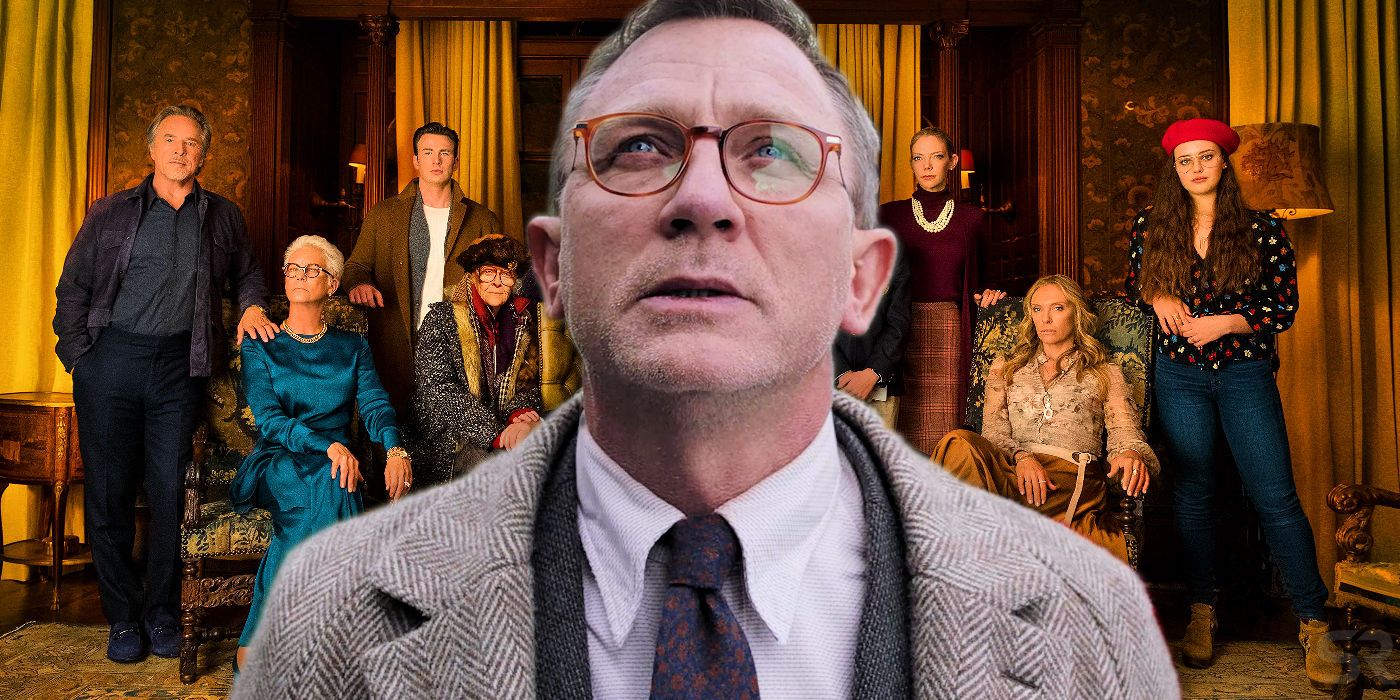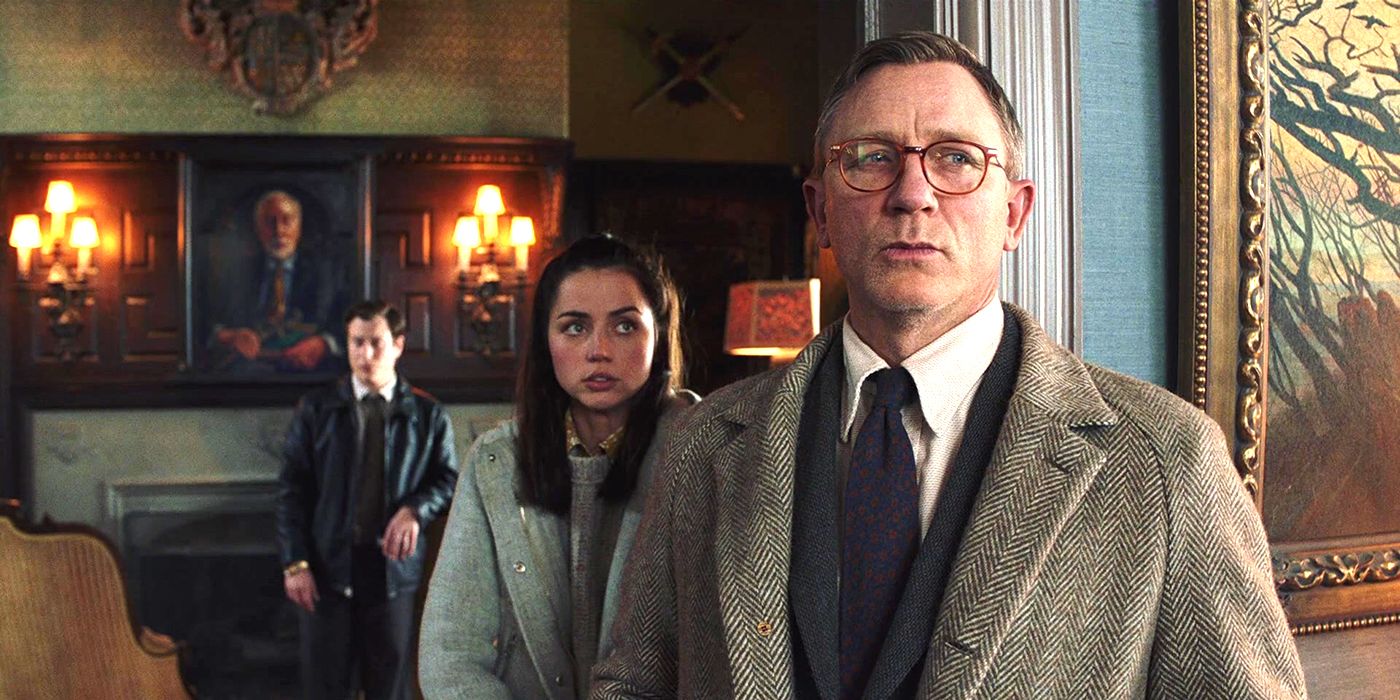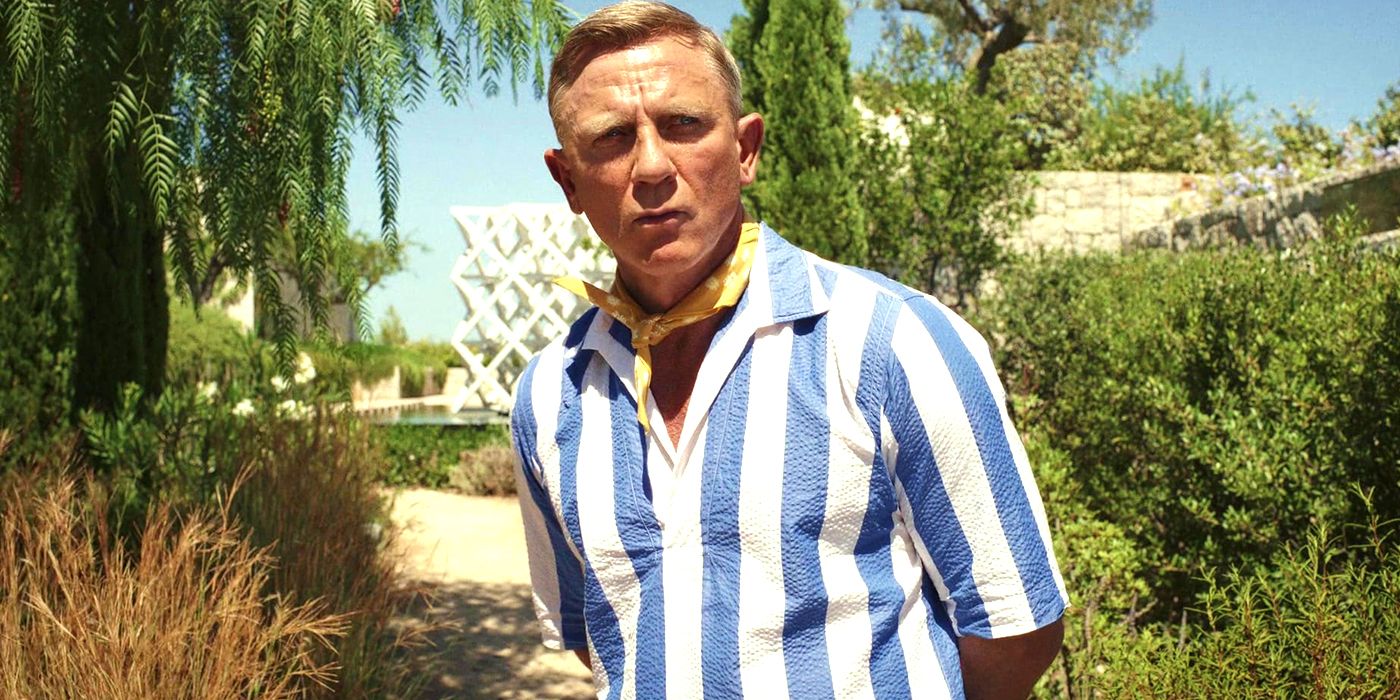Summary
- Netflix acquired two Knives Out sequels for a hefty price, but it's part of a long game to reshape the cinematic landscape and keep the franchise away from theaters.
- The original Knives Out was a success and revitalized the murder-mystery genre, making it an obvious choice for a sequel.
- While it's unclear if Netflix's investment will pay off in the short term, the streaming giant is competing with the idea of theatrical release to establish streaming as the dominant platform.
Netflix’s acquisition of two Knives Out sequels came with a hefty price tag, but the streamer is playing the long game. The original Knives Out was a phenomenon upon its 2019 release. The film, from writer-director Rian Johnson, gave audiences the increasingly rare delight of a sharply-written, wholly original theatrical property. The film played a heavy part in revitalizing the murder-mystery genre and reached box office heights seldom seen with modern mid-budget films. In today’s risk-averse blockbuster landscape, the greenlighting of such a film is a minor miracle.
Even in 2019, the film’s franchise potential was obvious. Daniel Craig’s uniquely accented detective, Benoit Blanc, immediately registered as an iconic character capable of carrying more feature-length murder mysteries. While it seemed likely that a sequel from producers Lionsgate and MRC was on the way, the pandemic put theatrical releases in an uncertain position. Netflix snatched up the title for a seemingly exorbitant sum. However, further analysis suggests that the deal is part of a larger plan to remold the entire cinematic landscape.
Netflix’s Knives Out Deal Explained
After the runaway success of 2019’s Knives Out, which took home $311 million on a $40 million budget, writer-director Rian Johnson was ready to start work on a follow-up, with Lionsgate once again behind the film. However, things changed when the pandemic hit. With theatrical business taking a nosedive, Johnson and his producing partner Ram Bergman began to doubt the viability of banking on timely resurgence of theatrical business, and instead began shopping the franchise round to streamers.
Netflix seized the opportunity, shelling out $469 million for exclusive rights to two Knives Out sequels, one of which became 2022’s Glass Onion. It’s an eye-watering sum, one that even overshadows Universal’s recent $400 million Exorcist deal. The deal yielded a tidy profit for Johnson, Bergman, and Daniel Craig, all of whom reportedly walked away with upwards of $100 million each (via THR). Netflix saw an encouraging first outing for their blossoming Knives Out franchise with the release of Glass Onion. The film registered as one of the platform’s most watched ever, counting 136 million views in its first 91 days of release.
Netflix’s Knives Out Deal Is Part Of A Long Game To Replace Theaters
Despite racking up a high view count, it’s unclear whether Netflix’s Knives Out deal will pay for itself in the short term. It’s hard to know if strong viewership translates to new paying subscribers, and the streamer’s CEO even admitted (via THR) to leaving money on the table by not giving Glass Onion a wider theatrical release. However, Netflix’s pricey deal wasn’t motivated by a desire to generate an immediate profit off Glass Onion and the upcoming Knives Out 3. While most studios are simply competing with each other, Netflix is competing with the very idea of theatrical release.
Netflix has its sights set on a new cinematic landscape, one in which streaming is king. Their pricey deal to acquire Knives Out isn’t simply designed to turn a profit off the films, but to keep the franchise away from other studios who might give the films a cinematic release. Netflix does not want theaters to profit off a proven box office commodity like Knives Out, nor does it want audiences to continue to see theaters as the home of exciting cinematic properties. $469 million may be a high price to pay for a mystery franchise, but it’s a small price to pay for building an empire.
Source: The Hollywood Reporter



